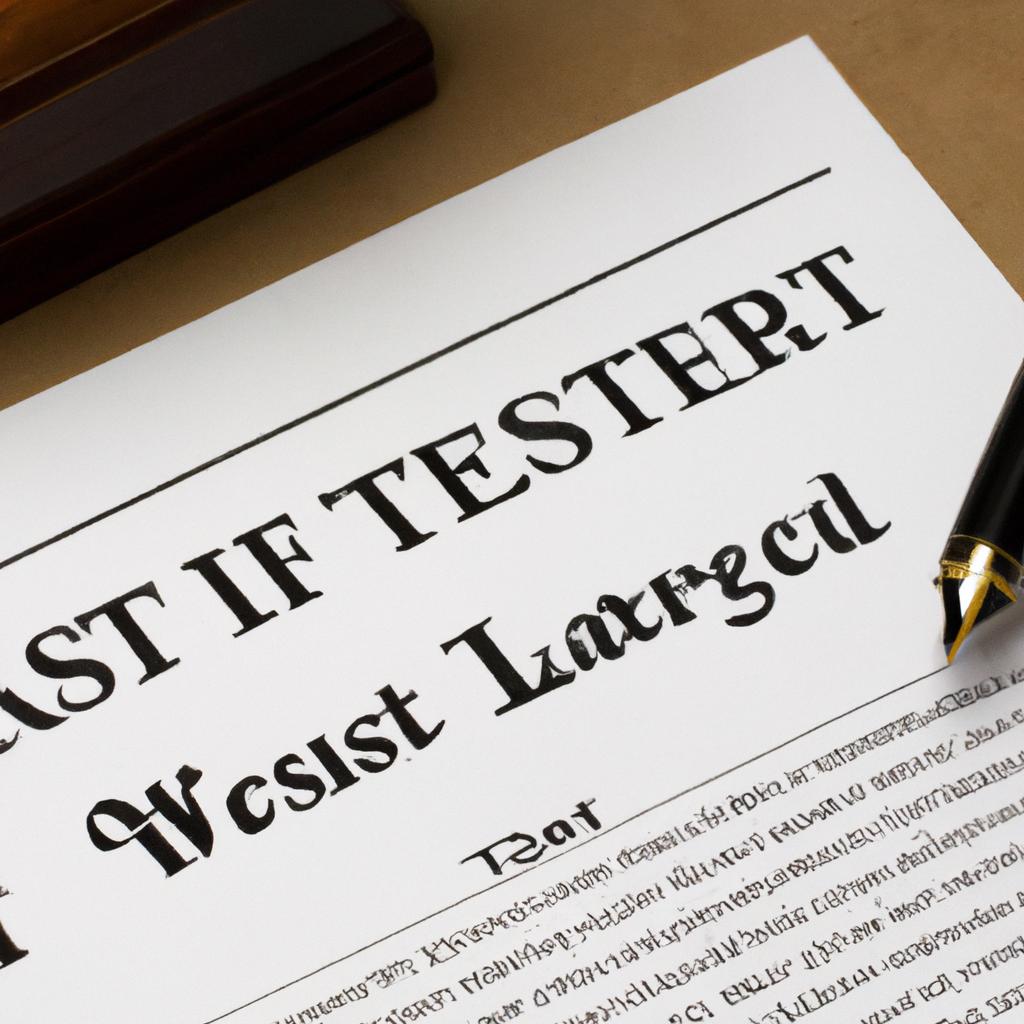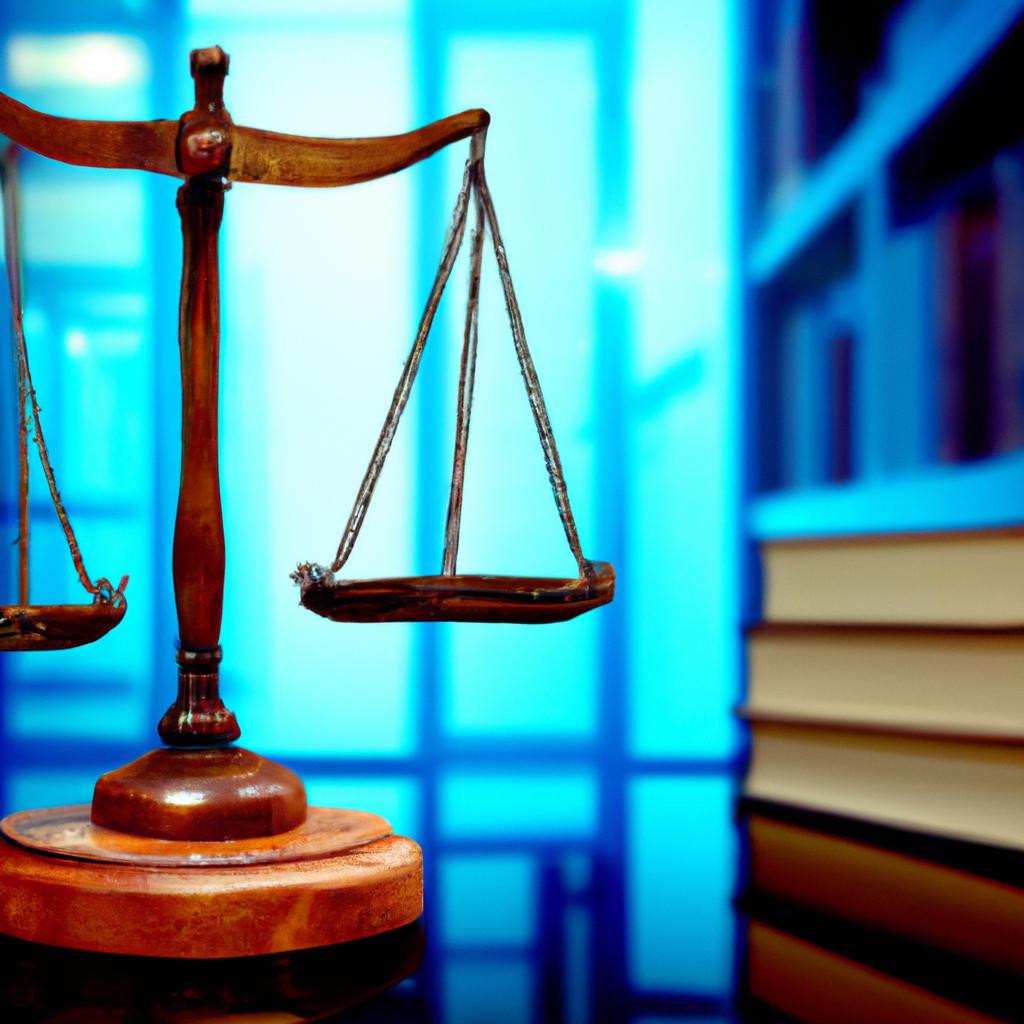In the intricate realm of estate planning, one pivotal figure stands at the heart of every Last Will and Testament: the testator. Defined by their foresight, intent, and legal acumen, the testator wields the power to shape the destiny of their assets and legacy. In this article, we delve into the essence of the testator, exploring their role in the crafting of a will and the significance of their decisions. As seasoned practitioners in the field of estate law, the experts at Morgan Legal Group strive to illuminate the nuances of this crucial figure and demystify the complexities of their testamentary endeavors.
Understanding the Role of the Testator in a Last Will and Testament
In a Last Will and Testament, the testator plays a crucial role as the individual who creates and executes the legal document outlining their wishes for the distribution of their assets upon their death. The testator holds the power to designate beneficiaries, name an executor to carry out the terms of the will, and appoint guardians for minor children if necessary. It is essential for the testator to carefully consider their decisions and ensure that their wishes are clearly stated in the will.
As an experienced estate planning attorney at Morgan Legal Group in New York City, I have seen the importance of a well-crafted will and the role of the testator in the process. The testator must be of sound mind and legal age to create a will, and their intentions must be clearly expressed in the document. It is also crucial for the testator to update their will periodically to reflect any changes in their circumstances or wishes. By understanding the role of the testator in a will, individuals can take control of their estate planning and ensure that their assets are distributed according to their wishes.
| Beneficiaries |
| Executor |
| Guardians for minor children |

Key Considerations When Choosing a Testator for Your Will
When selecting a testator for your will, it is crucial to consider several key factors that will ensure your wishes are properly carried out after your passing. One important consideration is choosing someone who is of sound mind and fully understands the contents of your will. This individual should be trustworthy, responsible, and detail-oriented to ensure your assets are distributed according to your wishes.
Additionally, it is important to select a testator who is likely to outlive you and is not a beneficiary of your estate to avoid any conflicts of interest. The testator should also be someone who is willing and able to fulfill their duties, such as signing the will in front of witnesses and ensuring it is properly executed. By carefully choosing the right testator for your will, you can have peace of mind knowing that your final wishes will be carried out effectively and accurately.

Ensuring the Validity and Enforceability of a Will Through Proper Testator Selection
Choosing the right testator is crucial in ensuring the validity and enforceability of a will. The testator is the person who creates the will and determines how their assets will be distributed after their passing. It is important to carefully select a testator who is of sound mind and understands the implications of creating a will.
<p>When selecting a testator, consider the following:</p>
<ul>
<li><strong>Capacity:</strong> The testator must have the mental capacity to understand the nature and extent of their property, as well as the beneficiaries of their will.</li>
<li><strong>Intent:</strong> The testator must create the will voluntarily and without undue influence from others.</li>
<li><strong>Legal age:</strong> The testator must be of legal age, typically 18 years old or older, to create a valid will.</li>
</ul>

Best Practices for Appointing a Testator for Your Estate Planning Needs
When it comes to estate planning, appointing a testator is a critical step in ensuring your wishes are carried out after you pass away. The testator is the person who creates a will, outlining how their assets should be distributed upon their death. It is essential to choose a testator who is trustworthy, competent, and reliable to carry out your wishes accurately.
When selecting a testator for your estate planning needs, consider the following best practices:
- Choose someone you trust: It is crucial to select a testator who will act in your best interests and follow your wishes precisely.
- Ensure they are competent: The testator should have the mental capacity to understand the implications of creating a will and executing your wishes accurately.
- Discuss your wishes openly: Communication is key when appointing a testator. Make sure they understand your desires and are willing to carry them out.
Q&A
Q: Who is the testator in a will?
A: The testator is the person who creates and signs a will, outlining how their assets and belongings should be distributed after their death.
Q: Can more than one person be a testator in a will?
A: No, only one person can be the testator of a will. However, a will can include multiple beneficiaries who will receive the testator’s assets.
Q: What is the significance of naming a testator in a will?
A: Naming a testator is crucial in ensuring that the will is legally valid and that the testator’s wishes are followed after their passing.
Q: What happens if a will does not name a testator?
A: If a will does not clearly name a testator, it may be deemed invalid by the courts, and the deceased person’s assets may be distributed according to state laws rather than their preferences.
Q: Can the testator change their will at any time?
A: Yes, the testator can change their will at any time by creating a new one or making amendments to their existing will in accordance with legal requirements.
Final Thoughts
In conclusion, understanding the role of the testator in a will is essential in navigating the complexities of estate planning. By clearly identifying who the testator is and their responsibilities, individuals can ensure that their final wishes are carried out as intended. Whether you are creating your own will or assisting a loved one in creating theirs, knowing the significance of the testator is key in the process. So, remember to carefully consider this important role and seek legal guidance if needed to ensure a smooth and secure transfer of assets to your heirs.

